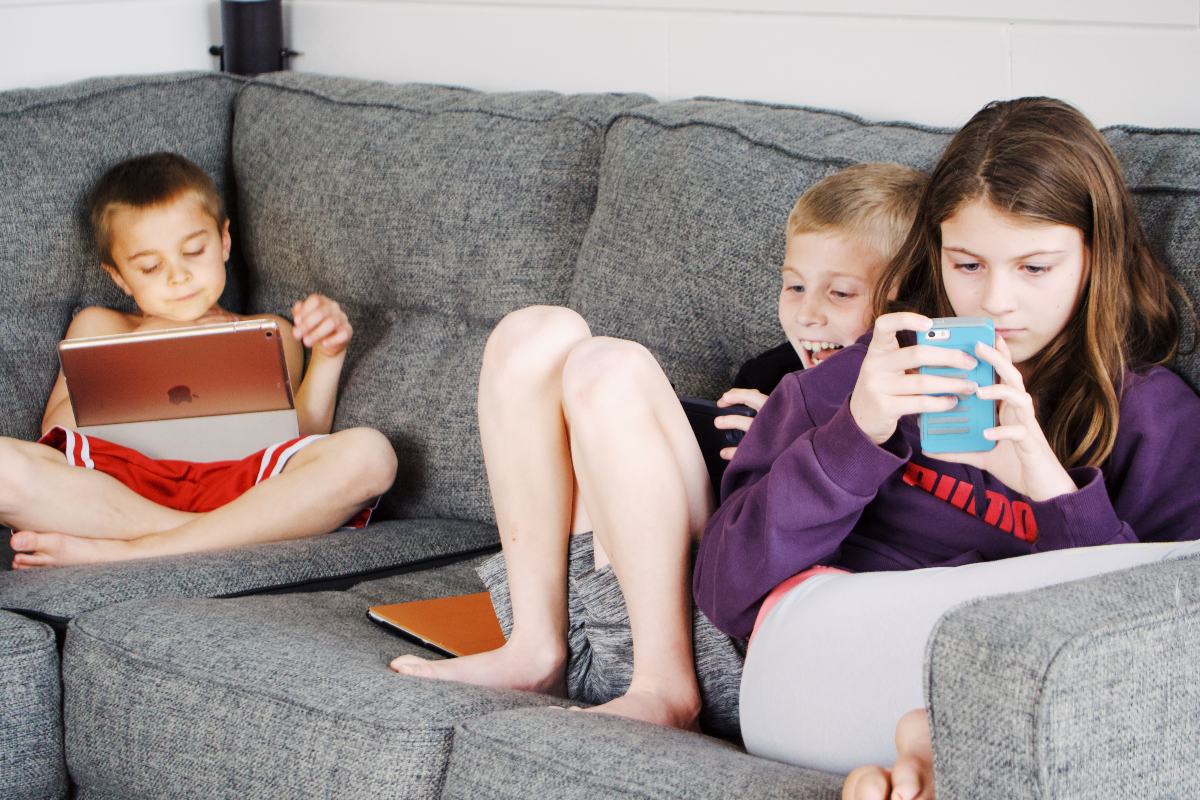
Screen time for children is often a conflicting topic and as parents, we all want the best for our children. In today’s digital age, managing screen time can be a constant struggle, especially with the variety of different views on what’s considered normal. The increase in online media and technology such as smartphones, tablets and laptops becoming an integral part of daily life has made it even more of a battle to keep younger children away from it.
With this in mind, parents ask themselves ‘how much screen time is too much for kids?’ Well in this blog, we explore the recommended screen time limits and guidelines for children to give you a better understanding. We also take a look at the potential impact of excessive screen time on their development along with offering some tips to striking a healthy balance.
Why is limiting screen time for children important?
Limiting screen time for children is crucial for their overall well-being and development. Too much screen time for kids can have negative effects on their physical health, mental health and their social skills – which we explore a little later. Setting limits on screen time encourages children to engage in other activities that promote physical health and social interaction.
By establishing a healthy balance between screen time and other activities, it can help foster creativity, problem-solving skills and emotional intelligence. It also allows for parents to support their child’s holistic development and ensure they grow up to be well-rounded individuals.
How much screen time is recommended?
As we’ve mentioned, striking a healthy balance with screen time for your kids is important. Whilst there isn’t any official guidance in the UK on how much screen time children should have, The World Health Organisation (WHO) recommend the below:
- Infants and 1 year olds – children at this age are still very vulnerable which is why it’s recommended to avoid any type of screen time all together. Babies who are 4 – 5 months old are also unable to avert their gaze from the flickering lights from screens and this can disturb their sleep.
- 18 – 24 months old – from 18 months old, it becomes a parent’s choice whether they wish to introduce screen viewing (e.g. TV watching). However it is recommended to keep this to a minimum and always ensure supervision.
- 2 – 4 year olds – the WHO recommends keeping screen time to less than 1 hour where possible per day. It’s at this age that parents should help their children understand what they’re watching as this is their prime learning stage.
- 5+ year olds – at this stage, it’s important to apply parental control features to TV watching and limit the types of websites and social media their children are using.
What are the negative effects of too much screen time for kids?

Screen time can be a convenient way to keep children entertained, however it’s important to be aware of the potential negative effects of too much exposure. Excessive screen time has been linked to various issues as outlined below.
Behavioural problems
Children who spend more than 2 hours a day watching TV, or playing on a smartphone or computer, are more likely to have attention, social or emotional problems both in school and at home. They may become more irritable, have difficulty focusing, and experience heightened levels of impulsivity.
Higher risk of obesity
Too much screen time for kids can contribute to obesity as they’re more likely to lead sedentary lifestyles, which impacts their physical health. Screen time replaces active play and exercise and this can lead to decreased energy expenditure and potential weight gain. The exposure to adverts promoting unhealthy foods also influence their eating habits and choices.
Violence issues
The combination of too much screen time and lack of restrictions can lead to children being exposed to violent music, TV shows, films and video games. This then leads to them becoming desensitised to violence and in some extreme cases, even mimicking or using violence in everyday life.
Disturbed sleep routine
The blue light that is emitted by screens can interfere with the production of melatonin, a hormone that regulates sleep. This disruption can make it harder for children to fall asleep and stay asleep, leading to overall poor sleep quality and daytime tiredness.
Tips for managing screen time for kids
When it comes to managing screen time for kids, setting boundaries and establishing healthy habits is the key to success. Here are some simples tips to help you manage screen time with your kids:
- Establish screen-free zones – designate rooms or areas in your home where screens are not allowed, such as the dinner table or bedrooms, to encourage non-screen activities and enjoy quality family time.
- Set time limits – limit the amount of time your child spends on screens each day and encourage breaks for physical activity and social interaction.
- Encourage different activities – try and encourage your child to engage in a variety of activities beyond screens, such as reading, playing outside, or doing arts and crafts to promote a balanced lifestyle.
- Lead by example – as a parent, you should aim to be a positive role model by also practising healthy screen habits yourself and engaging in offline activities with your child. By promoting a healthy balance, you can help your child develop a positive relationship with technology.
How to keep your child safe online

Keeping children safe online has become a huge priority and rightly so. While technology can be a valuable tool for learning and entertainment, not all aspects of the online world are safe. That’s why setting some ground rules for screen time is vital for keeping your child safe in the digital space.
You should establish clear rules and set boundaries on when and how long your child can use their devices. Utilising parental control features can help with this and help block any inappropriate content.
When your child is online, be sure to monitor their activity so you can keep an eye on the content they’re accessing and who they’re interacting with. Encouraging regular breaks too can help promote physical activity and enhance their social interaction with the real world.
By staying involved in your child’s online activities and actively keeping them safe online, you can help ensure they have a positive and safe experience in the digital world.
Learn more about our day nursery
We hope through our exploration of expert recommendations and tips for managing and keeping your children safe online, we’ve given you a better understanding of how much screen time is too much for kids. As you can see, it’s key to be clear with screen time limits with your children and ensure you set rules and boundaries on what can be accessed when they’re online.
At Stepping Stones, we pride ourselves on providing a safe and fun environment for your children where they can make new friends, develop and learn new skills, as well as playing their favourite games. We believe this gives them a great opportunity to enhance face-to-face relationships with children their own age and grow without the need for screens.
If you would like to see our nursery for yourself, be sure to book a visit today. We also offer free trial sessions for your little one, allowing them and you to fully experience our day nursery before committing. Speak to our friendly team today to learn more!
